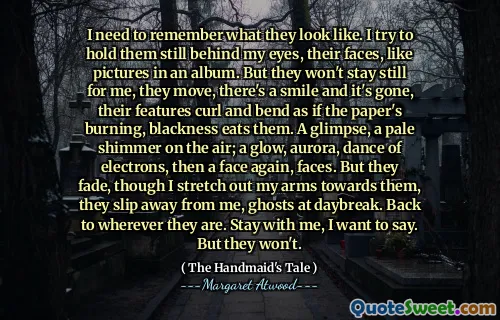I used to think of my body as an instrument, of pleasure, or a means of transportation, or an implement for the accomplishment of my will.
In "The Handmaid's Tale," the protagonist reflects on her perception of her body, considering it primarily as a tool for various purposes such as pleasure, mobility, and the ability to achieve her desires. This view emphasizes a utilitarian approach to the body, indicating a sense of control and agency over oneself. However, as the narrative unfolds, this perspective is challenged by the oppressive societal structures that reduce women to their reproductive capacities.
Atwood explores the tension between empowerment and subjugation, as the character's body becomes a site of conflict. The transition from seeing her body as an instrument to feeling trapped by societal expectations highlights the loss of autonomy. This transformation serves as a powerful commentary on the ways in which women's bodies are policed and controlled, stripping away the multifaceted nature of identity and personal agency.






